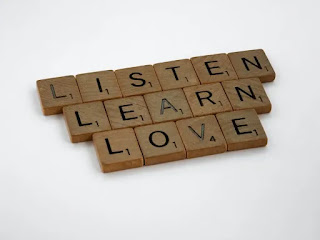Gut feeling and helping the alcohol or drug user
There is something to be said about a “gut feel”. It’s pure and unadulterated by the mind. It
lives in the moment and can alert you to cues that you may not be noticing. It cannot be
controlled or manipulated and if respected can help you navigate even the most difficult of
situations or experiences.
One place this “gut feel” can be useful is when dealing with someone struggling with alcohol or drugs. The phrase “the most honest person in the world is a dishonest addict” illustrates that with addiction comes lies. Expect them. Sorting out truth from lies, fact from fiction with someone who is using alcohol or drugs can be difficult. Often, after a conversation with an alcohol or drug user you may come away feeling a little confused. They are good at manipulating and diverting blame and attention. Motives can often be skewed and their behavior might not match the reality of their state. They are also really good at hiding their true emotions and can have a lot of emotional and mental defenses. Knowledge and observations may not be enough to let you understand the true picture of where they are at. Your “gut feel” becomes a valuable tool to help you figure out what might be really going on. Trust it.

Tips To Help
The following are some tips that may benefit you in guiding someone who is seeking drug or alcohol help.
• Remember, there are two important ingredients needed for change to occur. There must be a desire to change and a belief that the change will positively impact their life.
• Help them to focus on the positives. Why? Because they already know their life is a mess. What they don’t know is if they have the ability to climb out of this mess. If someone using alcohol or drugs does not seem to be changing for the better, It may be because they do not see any significant personal life benefits or improvement.
• Help them find their self-confidence. The alcohol or drug user doubts their ability to handle life situations. If they doubt they can survive the stress of life without alcohol or drugs then they will not want to give it up. Find and emphasize their talents. Just because someone drinks or uses drugs does not mean they are weak willed. Their wills have taken them places no one else would want to go. If they wanted to drink or drug they found a way to do it. Use this strength to re-focus them and find their confidence.
• Don’t constantly remind them of the negative consequences of alcohol or drug use. Help them move away from dwelling on the negative consequences. The alcohol or drug user compensates for their feelings of inadequacy, fear and helplessness by drinking or drugging. To constantly remind them of the negative consequences does not find a solution or way for them to regain control of their fear and helplessness it just reinforces their feelings of inadequacy.
• Help them find proper support and peer groups. It is important that support is present outside of the family.
Remember we all rise or fall to the expectation of others. Let them see positive changes in people who have been where they are.
• Are their current goals and values in line with what they want their life to be about? If not, they need to be revisited. Maybe they are telling you they have a better idea and path for their life. Explore the options and motivations for what they want their life to be about. Find out what they really desire and value in life.
• Allow them to own their problem. This gives them dignity and confidence that they can. We sometimes assume that someone who abuses alcohol or drugs is incompetent or unable to decide for themselves what options they need. Help them find and explore the right ones.
• Understand their immediate needs. Whatever they believe is impairing their life situation needs to be explored. I have made the mistake of trying to motivate change in someone while ignoring the fact that they have nowhere to live and not enough money to eat on. Be practical and realistic with how you help. Don’t just throw out ideas. Set practical goals for the specific needs of the individual.
• Empower the individual struggling with alcohol or drugs by avoiding cleaning up their mess. We do this by taking away all the excuses they may have to why they cannot stop drinking or drugging. They will have many of these excuses. But, the bottom line is that they do not believe they have the necessary personal resources to overcome addiction.
• Disengage and don’t get involved with the blame game. Drug or alcohol abusers are real good at this. They can twist any situation to support their misery. Let choices and consequences be theirs. This way there is no one to blame but themselves.
• Let them know that it is OK to feel. Teach them. To them, feelings are the enemy and have to be avoided. Help the alcohol or drug user see that feelings come and go and feelings will not kill you and it’s how you respond to them that matters. Fear is one example. Get them to tackle one of these fears head on and they gain some ground. Build on these small successes so they can start to see their innate abilities to change.
• Get them out of their heads! There is no destructive force in the world greater than an addict’s self-centered thinking. The alcohol or drug abuser has such a selfish view (story) that if they are left in their own heads, there is little chance of positive change. What works well here is to have them help out others. If they are thinking of someone else, they will not be thinking of themselves.
Tim Welch, LPCC Mental Health Counseling,
Newark, Ohio Licking County Online Therapy. Virtual Counseling for Alcohol Addiction, Drug Addiction, Anxiety, Depression & Mental Health Issues.


